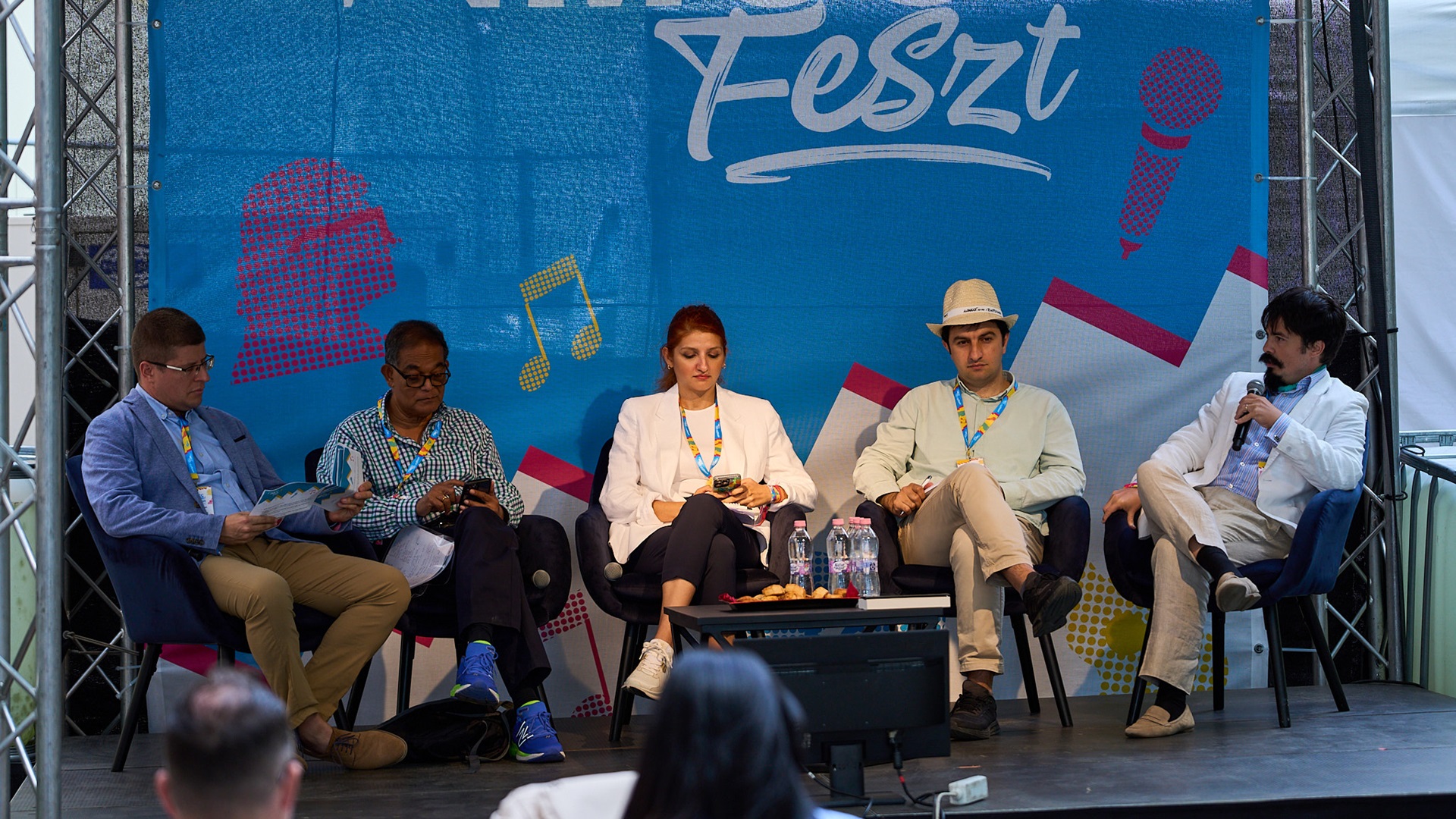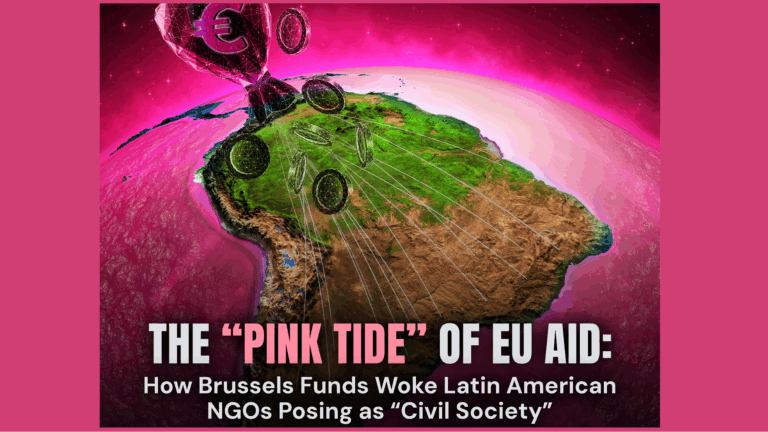The last day of MCC Feszt 2024 still had plenty of interesting panel discussions left. Vasif Huseynov, a senior fellow at the Center of Analysis of International Relations (AIR Center) and adjunct lecturer at Khazar University in Baku, Azerbaijan; Titus Techera, Executive Director for the American Cinema Foundation and cultural critic; Amitav Acharya, Distinguished Professor of International Relations at American University; and Şuay Nilhan Açıkalın, a faculty member in the Department of International Relations at Ankara Hacı Bayram Veli University gathered to discuss two competing approach to foreign policy, connectivity and isolation. Márton Sulyok, head of the Public Law Center at MCC, served as the moderator for the afternoon.
Dr Açıkalın started by saying that
‘it is time to talk about international relations in multi-disciplinary, interdisciplinary terms,’
then pointing out that the term ‘connectivity’ was borrowed from the field of mathematics. She then explained that international relations can also be viewed through the lens of the network model from physics, in which individual countries act as nodes in a network system. She also stated that ‘regional issues should be solved within regional systems,’ and then those regional systems ‘should interact with each other as much as they can’.
Mr Acharya challenged the dichotomous view of isolation vs connectivity, saying that ‘there is connectivity in isolation’. He elaborated that completely isolated civilizations with no contact with each other came up with the same solutions to the same problems. He cited the example of the people of the Inca and Gupta Empires in South America and India, respectively, starting using cotton clothing a thousand years and thousands of miles apart from each other. He then made the claim that the East-West cultural division of world powers is a post-Enlightenment, racist idea, originally coined to promote the supremacy of Western European cultures.
Mr Huseynov told the audience that the geopolitical view of international relations, prominent in the Soviet Union in the Cold War era, is still prevalent in his home country of Azerbaijan. He then added that isolation was never an option for his country due to its geographical location, given that it has always been located ‘in the crossroads’ of major empires. He also pointed out that since the outbreak of the Russo-Ukrainian war, the strategic importance of his country has increased, since more goods are now being transported in the Middle Corridor transportation route, which goes through Azerbaijan.
Doç. Dr. Şuay Nilhan AÇIKALIN on X (formerly Twitter): “I was part of fantastic panel to talk connectivity, civilizational dialogue and leadership moderated by Marton Sulyok #MCCFeszt.”Connectivity and interaction can save us from another war”@HuseynovVasif @AmitavAcharya@MCC_Budapest pic.twitter.com/ohbfEulKvV / X”
I was part of fantastic panel to talk connectivity, civilizational dialogue and leadership moderated by Marton Sulyok #MCCFeszt.”Connectivity and interaction can save us from another war”@HuseynovVasif @AmitavAcharya@MCC_Budapest pic.twitter.com/ohbfEulKvV
Mr Techera talked about the United States, where a presidential election is taking place in just a few months. According to him, a change of leader also results in a change of self-image on the national level. The United States was the great power of the 20th century, with a very well-defined self-image. However, it often did not know how to approach international relations. Today, Mr Techera believes, it is the reverse. The US has a very clear and consistent approach to foreign policy, but is struggling to hold onto a self-image domestically. He also noted how the intellectual elite is now exporting their ideology to Europe, referring to the progressive, woke ideology.
As for Europe, Mr Techera now views it as ‘more of an arbitrator, not a great military power’.
He believes that Europe has lost most of its might in the age of cooperation within the EU. Prior to the mid-20th century, there was much ‘power in opposition,’ with many of the competing European empires being major global powers as well.
When asked by Mr Sulyok, the moderator, about what would the ideal leader be like in these turbulent times, Dr Açıkalın named three attributes: flexibility, pragmatism with values, and charisma. Mr Acharya added one of his own, morality; while Mr Techera added bravery. He then elaborated that manliness and bravery are still virtues even if it is shunned by the woke ideologues, claiming that ‘Viktor Orbán is hated because he acts like a man’.
Related articles:








